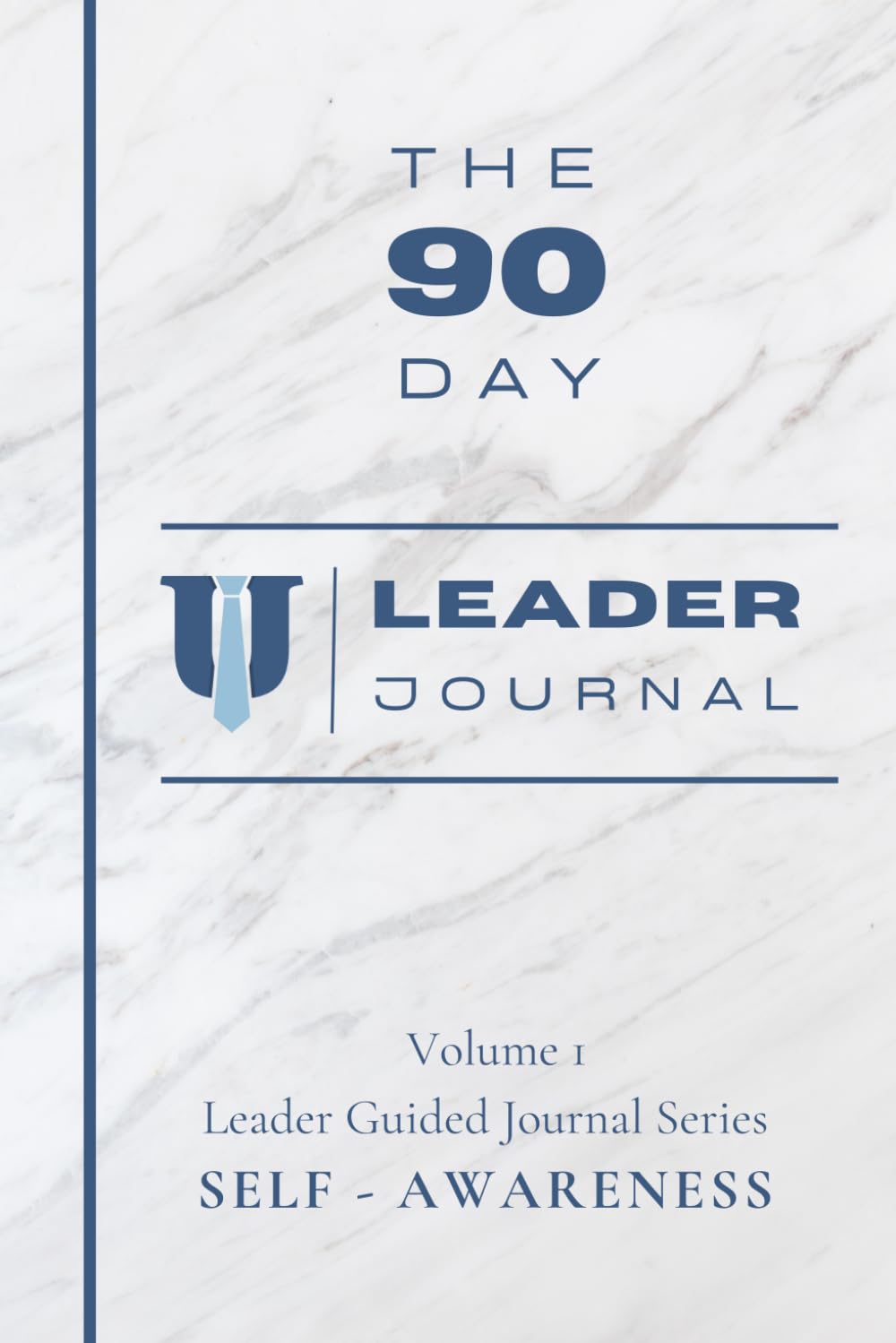
In this blog, discover how journal reflection questions can significantly enhance your leadership effectiveness. Delve into tailored queries designed to refine your decision-making, communication, and conflict-resolution skills, fostering a deeper understanding of your leadership journey and unlocking new avenues for personal and professional growth.
Table of Contents
Introduction
Leaders across spectra strive not only to adapt and excel but to forge paths others can follow. Amidst the myriad tools and techniques at their disposal, one stands out for its simplicity, accessibility, and profound impact: journal reflection. Journaling, particularly through targeted journal reflection questions, offers leaders a mirror to their thoughts, decisions, and actions, enabling a deep dive into the core of their leadership approach.
This blog post delves into the world of “Journal Reflection Questions to Enhance Leadership Effectiveness,” a realm where introspection meets strategy, fostering a breeding ground for leadership excellence. At its heart, this practice is more than just a routine; it’s a transformative journey that guides leaders through the intricacies of their roles, from decision-making and communication to conflict resolution and beyond. Through carefully curated journal reflection questions, leaders are invited to embark on a path of self-discovery and skill enhancement, unearthing insights that lie at the intersection of authenticity and success.
Why journal reflection, you may ask? The power of this practice lies in its ability to slow down the fast-paced world of leadership, offering a pause for thought, an examination of actions, and a clarity of purpose. It’s not merely about recounting events but engaging in a thoughtful dialogue with oneself, exploring the depths of leadership challenges, and emerging with refined strategies and a renewed sense of direction.
As we explore these journal reflection questions, we invite leaders to engage with their experiences, perspectives, and aspirations on a profound level. This exploration is not just about identifying areas for improvement; it’s about celebrating achievements, recognizing strengths, and, most importantly, forging a path toward effective and authentic leadership.
Join us as we unfold the pages of this reflective journey, where each question serves as a stepping stone toward enhanced leadership effectiveness. Whether you’re a seasoned leader or embarking on your leadership voyage, these journal reflection questions are your allies in the pursuit of excellence, offering insights that illuminate the path to becoming a leader who not only leads but inspires.
The Role of Reflection in Leadership
Reflection plays a pivotal role in enhancing leadership effectiveness. It allows leaders to pause, evaluate their actions, and recalibrate their strategies based on insights gained from their experiences. Journal reflection questions are a key tool in this process, offering a structured way to examine one’s leadership practices, decision-making, communication styles, and conflict-resolution approaches. This structured introspection helps leaders identify strengths and areas for improvement, fostering a deeper understanding of their impact and how to navigate challenges more effectively. Writing down these reflections enhances clarity and accountability, turning abstract thoughts into actionable insights.
By embedding reflective practices into their routines, leaders not only foster personal growth but also contribute to building a culture of learning and adaptability within their organizations, ultimately leading to more authentic and sustainable leadership.
The Ultimate List of Journal Reflection Questions for Leaders
This collection of thought-provoking questions is designed to inspire leaders to reflect on various aspects of their role, including decision-making, communication, conflict resolution, emotional intelligence, and goal setting. By systematically exploring these areas through reflective journaling, leaders can gain insights into their behaviors, identify areas for improvement, and enhance their overall impact. Whether you’re a seasoned executive or an emerging leader, these reflection questions offer a structured path to introspection, learning, and growth, setting the foundation for transformative leadership practices.

Questions to Improve Decision-Making
Decision-making is at the core of leadership. Every leader’s choice can significantly impact their team, organization, and career. To refine this crucial skill, journal reflection questions can be a powerful tool, guiding leaders through an introspective analysis of their decision-making process. This section presents targeted questions to enhance your ability to make thoughtful, strategic decisions.
- What was the situation that required a decision?
- Begin by outlining the context. Understanding the background and specifics of the scenario can provide valuable insights into the complexity of the decisions you face.
- How did I gather information before making the decision?
- Reflecting on your approach to information gathering can reveal whether you have a balanced view or if you’re leaning too much on certain sources or perspectives.
- What alternatives did I consider, and why?
- Considering multiple alternatives is crucial for effective decision-making. This question helps you evaluate your ability to think divergently and assess various options.
- Did I consult others, and how did their input influence my decision?
- Collaboration and seeking advice can enhance decision quality. Reflect on how you incorporate others’ perspectives into your decision-making process.
- What were the key factors that influenced my final decision?
- Identifying the reasons behind your choice helps you understand your priorities and values in the decision-making process.
- How do I assess the impact of this decision?
- Consider the short-term and long-term effects of your decision, not just on the business but also on people and relationships.
- What would I do differently next time?
- This critical reflection question encourages learning from experience, allowing you to adapt and refine your decision-making strategy over time.
- How can I improve my decision-making process?
- Finally, based on your reflections, identify specific areas for improvement and actions you can take to enhance your decision-making skills.
By regularly engaging with these journal reflection questions, leaders can develop a more analytical, thoughtful approach to decision-making. This process not only aids in making more informed decisions but also in understanding one’s own decision-making style, leading to enhanced leadership effectiveness and better outcomes for their team and organization.
Enhancing Communication Skills Through Reflection
Effective communication is a cornerstone of successful leadership. It’s not just about conveying information but also about inspiring and influencing others. Journal reflection questions can be a transformative tool for leaders looking to enhance their communication skills. This section provides targeted questions designed to deepen your understanding of your communication style and its impact on others.
- How do I describe my current communication style?
- Reflect on how you typically interact with others. Are you more direct or indirect? Do you prioritize listening or speaking?
- What feedback have I received about my communication style?
- Consider both positive and constructive feedback you’ve received and how it aligns with your perception of your communication skills.
- In what situations do I find communication most challenging, and why?
- Identifying challenging scenarios can help you understand areas where your communication might need adjustment or improvement.
- How effectively do I listen to others?
- Listening is half of effective communication. Reflect on your listening habits and how they affect your ability to understand and connect with others.
- How do I adapt my communication style to different audiences or situations?
- Consider the flexibility of your communication style and how well you adjust your approach based on the audience or context.
- What strategies have I used to overcome barriers in communication?
- Reflect on past experiences where you faced communication barriers and what you did to overcome them.
- How do I ensure my message is clear and understood?
- Think about the methods you use to verify that your message has been accurately received and comprehended by others.
- What role does empathy play in my communication?
- Consider how you use empathy to understand and connect with others, enhancing the effectiveness of your communication.
- How can I improve my communication skills?
- Based on your reflections, identify specific actions you can take to refine your communication skills, such as practicing active listening or learning new ways to articulate your thoughts clearly.
Regularly engaging with these journal reflection questions can illuminate strengths and areas for improvement in your communication skills. This introspective process encourages ongoing development, helping leaders build stronger relationships, foster team cohesion, and enhance their leadership effectiveness through improved communication.
Navigating Conflict with Reflective Journaling
Conflict is inevitable in leadership, presenting challenges that require tact, understanding, and effective resolution strategies. Reflective journaling can be a profound tool for leaders aiming to navigate conflicts more adeptly. By engaging with targeted journal reflection questions, leaders can gain insights into their conflict resolution style, understand the dynamics at play, and enhance their ability to manage disputes constructively. This section outlines key questions to guide leaders in reflecting on their approach to conflict.
- What was the nature of the conflict?
- Start by detailing the conflict situation, including the parties involved and the core issues at stake. Understanding the context is crucial for effective resolution.
- How did I react initially to the conflict?
- Reflect on your immediate emotional and behavioral response to the conflict. This can reveal natural tendencies or instincts in conflict situations.
- What strategies did I employ to address the conflict?
- Consider the methods or approaches you used to resolve the dispute. Were they effective in de-escalating the situation and reaching a resolution?
- How did I communicate with the other party(ies) during the conflict?
- Communication style can significantly impact conflict resolution. Reflect on how you conveyed your thoughts and listened to others.
- What role did empathy play in my approach to the conflict?
- Assess how well you understood and considered the perspectives and feelings of others involved in the conflict.
- What was the outcome of the conflict?
- Evaluate the resolution of the conflict, including both positive outcomes and areas where things could have been handled better.
- What lessons did I learn from this conflict?
- Identify key takeaways from the experience. Consider both the resolution strategies that worked and those that might need refinement.
- How can I improve my conflict resolution skills?
- Based on your reflections, outline specific actions or strategies you can adopt to enhance your ability to navigate conflicts more effectively in the future.
By regularly engaging in reflective journaling on conflict resolution, leaders can develop a deeper understanding of their conflict management style, identify areas for improvement, and cultivate a more constructive approach to resolving disputes. This introspective practice not only aids in personal growth but also contributes to building a more harmonious and productive team environment.
Building Emotional Intelligence
Emotional intelligence (EI) is a critical component of effective leadership. It encompasses the ability to understand and manage one’s own emotions, as well as recognize and influence the emotions of others. High EI can significantly enhance decision-making, team dynamics, and conflict resolution. Reflective journaling on emotional intelligence can provide leaders with deep insights into their emotional landscape and how it impacts their leadership style. This section offers a set of reflective questions aimed at fostering emotional intelligence.
- How do I typically respond to stress or pressure, and what does this reveal about my emotional management?
- Reflect on your reactions to high-pressure situations and consider what these responses indicate about your ability to manage emotions effectively.
- Can I identify a recent situation where I effectively managed my emotions?
- Analyze instances where you successfully navigated your emotional responses and maintained composure, considering the strategies that helped you achieve this.
- How do I recognize and address the emotions of others in the workplace?
- Consider your ability to perceive and empathize with the emotional states of your team members and how you act on that understanding.
- What strategies do I employ to motivate myself and others?
- Reflect on the methods you use to stay motivated and how you inspire motivation in your team, particularly during challenging times.
- How do I handle feedback, both positive and negative?
- Evaluate your reactions to feedback and what they say about your openness and resilience.
- Can I identify a time when my emotions influenced a decision? Was the outcome positive or negative?
- Analyze decisions that were significantly shaped by your emotions, considering both the process and the outcomes.
- How do I foster emotional intelligence within my team?
- Reflect on the steps you take to encourage emotional awareness and regulation among your team members.
- What are my emotional strengths and areas for improvement?
- Based on your reflections, identify your emotional intelligence strengths and the areas where you could improve.
- How can I further develop my emotional intelligence?
- Outline actionable steps or practices you can adopt to enhance your emotional awareness, regulation, and the ability to empathize with others.
Engaging with these questions on a regular basis can help leaders cultivate a greater understanding of their own emotional processes and how these influence their interactions and leadership effectiveness. By developing stronger emotional intelligence, leaders can create more cohesive, resilient, and motivated teams, navigating the complexities of leadership with empathy and insight.
Setting and Achieving Goals
The ability to set clear, achievable goals and outline strategies for reaching them is fundamental to effective leadership. Goals provide direction and motivation, not only for the leader but also for their team. Reflective journaling on goal setting and achievement can help leaders refine their approach to goal management, ensuring that their objectives align with their values and the broader organizational vision. This section introduces reflective questions designed to enhance leaders’ goal-setting and achievement processes.
- What goals have I set for myself and my team this year?
- Begin by detailing the specific objectives you’ve established, focusing on their alignment with personal and organizational values and priorities.
- How did I determine these goals?
- Reflect on the process you used to identify these goals, considering how you assessed needs, opportunities, and challenges.
- What strategies have I implemented to achieve these goals?
- Analyze the action plans and methods you’ve employed to work towards your goals, evaluating their effectiveness and adaptability.
- How do I track progress towards these goals?
- Consider the mechanisms you use to monitor progress, including how you measure success and identify areas for adjustment.
- What challenges have I encountered in pursuing these goals, and how have I addressed them?
- Reflect on any obstacles you’ve faced and the strategies you’ve used to overcome them, focusing on lessons learned and resilience.
- How do I involve my team in goal setting and achievement?
- Evaluate how you engage your team in the goal-setting process and how you foster a collective commitment to achieving these objectives.
- What successes have I achieved, and what contributed to these successes?
- Celebrate your achievements, considering the factors that led to success and how these can be replicated or expanded upon in the future.
- How have my goals evolved over time, and what have I learned from this evolution?
- Reflect on how your goals have changed and what these adjustments reveal about your growth as a leader and the evolving needs of your team and organization.
- What new goals am I inspired to set based on my reflections?
- Based on your insights, outline new objectives that align with your continued growth and the strategic direction of your team or organization.
By regularly engaging with these journal reflection questions, leaders can develop a more intentional and strategic approach to goal setting and achievement. This process helps realize personal and professional objectives and fosters a culture of accountability, growth, and success within their teams. Reflective journaling on goals encourages continuous learning and adaptation, key components of effective leadership.
Conclusion
Reflective journaling, particularly through targeted reflection questions, emerges as a powerful catalyst for leadership development. It enables leaders to delve deep into their decision-making processes, communication strategies, conflict-resolution approaches, emotional intelligence, and goal-setting abilities. By engaging in this introspective practice, leaders can uncover valuable insights about their leadership style, strengths, and areas for improvement. This journey of reflection is not just about self-discovery; it’s about actively shaping a path toward more effective, empathetic, and impactful leadership. Through continuous reflection and learning, leaders can transform challenges into opportunities for growth, fostering a culture of excellence and innovation within their teams and organizations.
Call to Action
As we conclude this exploration of journal reflection questions to enhance leadership effectiveness, I invite you to integrate these reflective practices into your daily or weekly routine. Begin by selecting one or two questions from each section to focus on each week. Write down your thoughts, observations, and the actions you plan to take. Notice the shifts in your perspective and leadership approach as you make this practice a regular part of your life.
But don’t stop there. Share your experiences with reflective journaling in the comments below. Which questions resonated with you the most? Did any particular insight or realization stand out? Your stories and reflections can inspire and encourage others on their leadership journey.
Furthermore, if you’re committed to advancing your leadership development, consider exploring additional resources, attending workshops, or working with a coach who can guide you through more personalized reflections and growth strategies.
Remember, the leadership journey is ongoing, and the pursuit of excellence is never solitary. By sharing our experiences and insights, we can all contribute to a richer, more supportive leadership community. Let’s continue to learn, grow, and lead together.





Leave a Reply